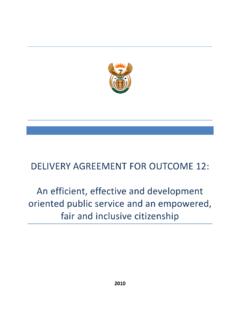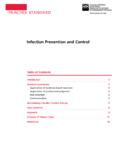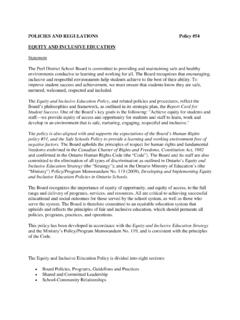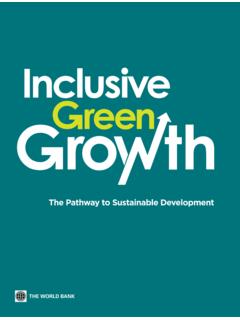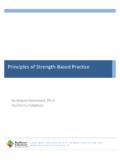Transcription of Background Brief - Inclusive Framework on BEPS
1 Background Brief Inclusive Framework on BEPS January 2017 TABLE OF CONTENTS | 5 Background Brief Inclusive Framework ON BEPS OECD 2017 Table of contents Executive summary .. 7 1. Background .. 9 The Base Erosion and Profit Shifting (BEPS) 9 Development of a comprehensive BEPS Action Plan .. 9 The BEPS package .. 9 Implementation of the BEPS package through joint action .. 10 2. Establishment of the Inclusive Framework on BEPS .. 11 Design of the Inclusive Framework on BEPS .. 11 Participating in the decision-making body on an equal footing .. 11 3. Programme of Work for the Inclusive Framework .. 13 Standard setting in respect of remaining BEPS issues .. 13 Reviewing the implementation of the four minimum standards .. 13 implementing decisions in terms of monitoring .. 14 Gathering data on other aspects of implementation .. 14 Implementation support, guidance and toolkits.
2 14 4. Achievements of the Inclusive Framework .. 15 5. BEPS implementation at a national level .. 16 6. Next steps .. 16 7. Contact .. 17 Annex 1 Overview of the BEPS package .. 19 Annex 2 Participation in decision-making bodies .. 21 Annex 3 Development of Toolkits and Reports .. 22 Annex 4 Steering Group of the Inclusive Framework on BEPS .. 23 EXECUTIVE SUMMARY | 7 Background Brief Inclusive Framework ON BEPS OECD 2017 Executive summary The international tax landscape has changed dramatically in recent years as a result of economic challenges, and new standards have been developed to enable countries protect their revenue bases. With a conservatively estimated annual revenue loss of USD 100 to 240 billion due to base erosion and profit shifting (BEPS), the stakes are high for governments around the world. With the political support of the G20 Leaders, OECD and G20 countries have taken joint action to address the weaknesses within the international tax system that create opportunities for BEPS.
3 Working with other countries, they have developed a comprehensive package of measures to tackle BEPS: the BEPS package. Countries and jurisdictions are now working together on implementing the BEPS package consistently on a global basis, and to develop further standards to address remaining BEPS issues. To these ends, the decision making body for the OECD's tax work - the OECD Committee on Fiscal Affairs (CFA) had been opened up to interested countries and jurisdictions in order to put in place an Inclusive Framework on BEPS. The Inclusive Framework on BEPS held its first meeting on 30 June - 1 July 2016 in Kyoto, Japan, and the second on 26 - 27 January 2017 in Paris, France. Members of the Framework work on an equal footing to tackle tax avoidance, to improve the coherence of international tax rules, and to ensure a more transparent tax environment.
4 In particular, the Framework : - develops standards in respect of remaining BEPS issues; - will review the implementation of agreed minimum standards through an effective monitoring system; - monitors BEPS issues, including tax challenges raised by the digital economy; and - facilitates the implementation processes of the Members by providing further guidance and by supporting development of toolkits to support low-capacity developing countries. Joining the Inclusive Framework offers the opportunity to interested countries and jurisdictions to participate in the BEPS related work on an equal footing with other OECD and G20 countries. Being part of the Inclusive Framework on BEPS will facilitate the implementation, as well as the peer review processes of the Members, by providing them further guidance and support, including guidance covered by the Platform for Collaboration on Tax established among the IMF, the OECD, the UN and the World Bank Group.
5 All countries and jurisdictions that have not become Members are invited to contact the OECD Secretariat (at to express their interest in joining the Inclusive Framework on BEPS. Countries and jurisdictions that want to join the Framework are required: to commit to the comprehensive BEPS package and its consistent implementation; and to pay an annual Member's fee to cover the costs of the Framework . Background | 9 Background Brief Inclusive Framework ON BEPS OECD 2017 1. Background The Base Erosion and Profit Shifting (BEPS) Project The international tax landscape has changed dramatically in recent years. With political support of G20 Leaders, the international community has taken joint action to increase transparency and exchange of information in tax matters, and to address weaknesses of the international tax system that create opportunities for BEPS.)
6 The internationally agreed standards of transparency and exchange of information in the tax area have put an end to the era of bank secrecy. With over 130 countries and jurisdictions currently participating, the Global Forum on Transparency and Exchange of Information for Tax Purposes has ensured consistent and effective implementation of international transparency standards since its establishment in 2009. At the same time, the financial crisis and aggressive tax planning by multinational enterprises (MNEs) have put BEPS high on the political agenda. With a conservatively estimated annual revenue loss of USD 100 to 240 billion, the stakes are high for governments around the world. The impact of BEPS on developing countries, as a percentage of tax revenues, is estimated to be even higher than in developed countries. Development of a comprehensive BEPS Action Plan In September 2013, the G20 Leaders endorsed the ambitious and comprehensive BEPS Action Plan, developed with OECD members.
7 On the basis of this Action Plan, the OECD and G20 countries developed and agreed, on an equal footing, upon a comprehensive package of measures in just two years. These measures were designed to be implemented domestically and through tax treaty provisions in a co-ordinated manner, supported by targeted monitoring and strengthened transparency. The BEPS package The BEPS package consists of reports on 15 actions, and sets out a variety of measures ranging from new minimum standards, the revision of existing standards, as well as common approaches which will facilitate the convergence of national practices, and guidance drawing on best practices. In particular, four minimum standards were agreed, to tackle issues in cases where no action by some countries or jurisdictions would have created negative spill overs (including adverse impacts of competitiveness) on others.
8 Their consistent implementation will allow countries to protect their taxable base. Existing standards have also been updated and will be implemented, noting however that not all countries that have participated in the BEPS Project have endorsed the underlying standards on tax treaties or transfer pricing. In other areas, such as recommendations on hybrid mismatch arrangements and best practices on interest deductibility, countries and jurisdictions have agreed a general tax policy direction. In these areas, domestic rules are expected to converge through the implementation of the agreed common approaches, thereby still enabling further consideration of whether such measures should become minimum standards. Guidance based on best practices will also support governments intending to act in the areas of mandatory disclosure initiatives or controlled foreign company (CFC) legislation.
9 An overview of the BEPS package is provided in Annex 1. 10 | Background Background Brief Inclusive Framework ON BEPS OECD 2017 Implementation of the BEPS package through joint action The BEPS package was agreed and delivered by OECD members and by G20 economies, and subsequently endorsed by the G20 Leaders Summit in Antalya on 15-16 November 2015. Even though some elements of the BEPS Action Plan are still being finalised or will be finalised in 2017, the main tasks now relate to the implementation of the agreed package. Effective and consistent implementation of the BEPS package requires an Inclusive implementation process. First, the implementation of the BEPS package into different tax systems should not result in conflicts between domestic systems. Furthermore, the interpretation of the new standards should not lead to increased disputes.
10 Finally, it is necessary to ensure a level playing field among countries and jurisdictions in the fight against tax avoidance. Jurisdictions identified as relevant to the work of the Global Forum on Transparency and Information Exchange for Tax Purposes (Global Forum) have already been subject to monitoring and peer review of the implementation of the Global Forum s standards on transparency and the exchange of information for tax purposes. A similar process is being developed for the implementation of the BEPS package. Inclusiveness also means that the implementation process is open to interested countries and jurisdictions. Therefore, the G20 Leaders called in their Communique from November 2015 on the OECD to develop a Framework which is open to all interested countries and jurisdictions, including developing countries.











